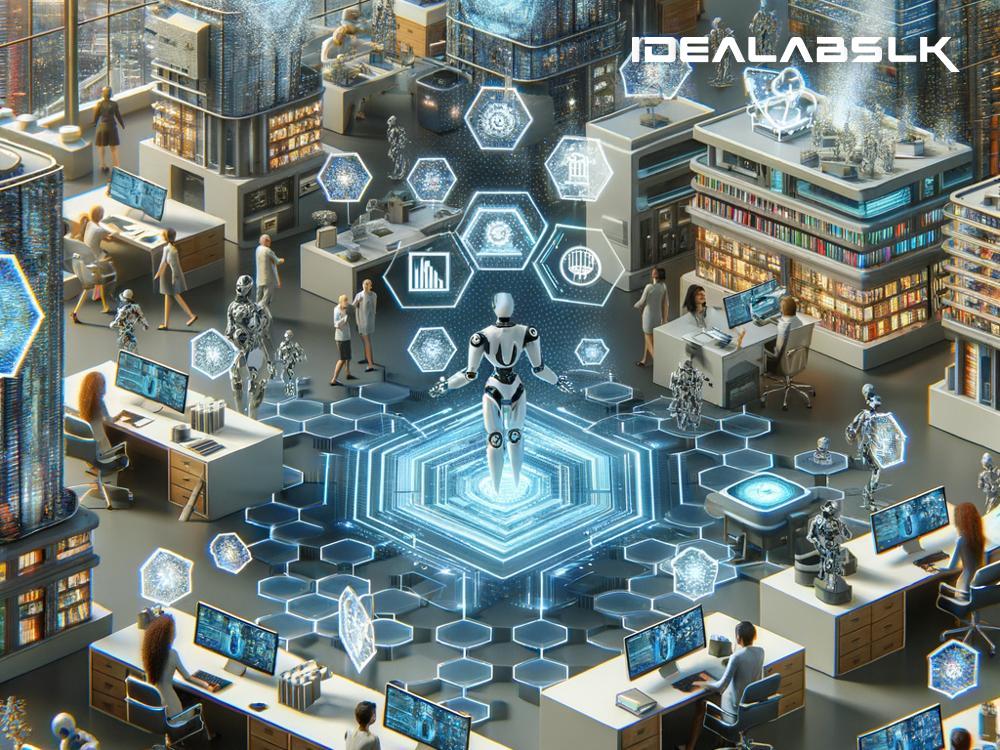AI and Blockchain in Rental Property Management: Simplifying for the Future
The world of rental property management is witnessing an unprecedented transformation, thanks to the integration of Artificial Intelligence (AI) and Blockchain technology. These two technological marvels are not just buzzwords but are steadily reshaping how property management functions, making processes more efficient, secure, and tenant-friendly. Let's break down these complex terms into simpler concepts and explore how they're revolutionizing rental management.
Understanding AI and Blockchain
Before delving into their applications in rental property management, let's understand what AI and Blockchain mean in the simplest terms. AI, or Artificial Intelligence, refers to the capability of a machine or computer program to think, learn, and make decisions just like a human would. Imagine a computer being able to predict what you need even before you ask for it – that's AI at work.
Blockchain, on the other hand, is a bit like a highly secure, transparent, and unalterable digital ledger. Think of it as a notebook where you pen down transactions, and once written, the entries cannot be erased or modified, and everyone has access to read it. This technology is the backbone of cryptocurrencies like Bitcoin but has vast applications beyond that.
Streamlining Operations with AI
In rental property management, AI is leading the charge in streamlining operations, enhancing decision-making, and improving tenant experience. Here's how:
-
Automated Tenant Screening: AI systems can quickly analyze vast amounts of data from tenant applications to identify the most suitable candidates. This means faster and more accurate tenant screening, saving property managers a significant amount of time and reducing the risks of renting to problematic tenants.
-
Predictive Maintenance: Predictive AI algorithms can analyze data from various sensors installed in properties to predict when a particular element of the property, like the HVAC system or plumbing, might need maintenance. This proactive approach can save landlords from costly emergency repairs and keep tenants happier.
-
Personalized Tenant Services: AI-powered chatbots and virtual assistants can provide tenants with 24/7 service, answering queries, and solving problems instantly. Moreover, they can learn from interactions to offer more personalized responses over time.
Enhancing Security and Transparency with Blockchain
Blockchain is playing a pivotal role in enhancing the security and transparency of rental transactions. Here are a couple of key areas where Blockchain is making a difference:
-
Secure Transactions: Blockchain can secure rental payments and deposits, ensuring that transactions are transparent, tamper-proof, and traceable. This technology can eliminate the risks of fraud, making the financial aspects of renting safer for both landlords and tenants.
-
Smart Contracts: Perhaps the most revolutionary application of Blockchain in property management is the creation of smart contracts. These self-executing contracts with the terms directly written into lines of code can automate the leasing process, from securing deposits to signing agreements. The terms are transparent and can automatically enforce conditions like late fees, reducing the need for middlemen and making the leasing process quicker and less prone to disputes.
The Future Landscape
The synergy between AI and Blockchain in rental property management is paving the way for a futuristic landscape where efficiency, security, and tenant satisfaction are paramount. Imagine a scenario where finding, renting, and managing properties can be done from the comfort of your couch, with the peace of mind that the technology ensures your decisions are optimal, and your transactions are secure.
Challenges and Considerations
While the benefits are compelling, integrating AI and Blockchain in rental property management also presents challenges. Issues such as data privacy, the digital divide, and the initial cost of implementation are considerations that need careful navigation. Moreover, as these technologies evolve, regulatory frameworks will need to keep pace to ensure that innovations benefit all stakeholders without unwarranted risks.
Conclusion
AI and Blockchain are not just transforming rental property management; they are redefining it for the better. By automating and securing processes, these technologies are not only making life easier for landlords and property managers but are also significantly enhancing the renting experience for tenants. As we look towards the future, it's clear that the integration of AI and Blockchain in property management holds the key to a more efficient, secure, and satisfying rental ecosystem. The journey has just begun, and the possibilities are endless.

